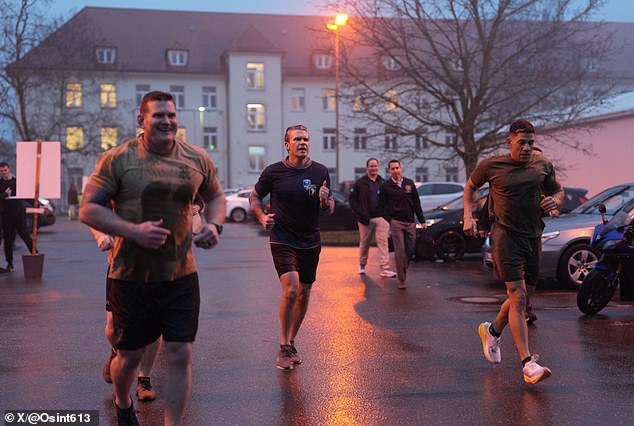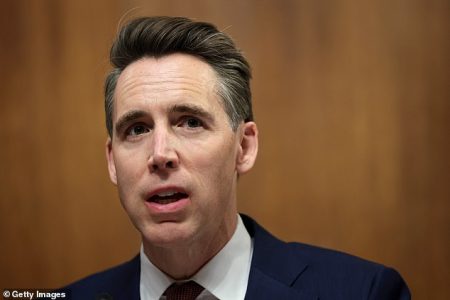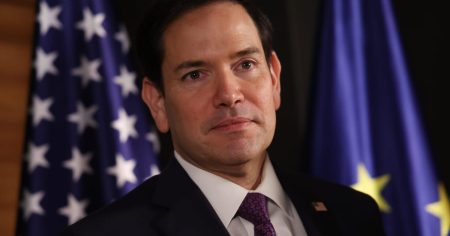The internet has been buzzing with excitement over a photo of a hulking Special Forces agent who was spotted on an early morning run with Secretary of Defense Pete Hegseth in Stuttgart, Germany. The image, which quickly went viral, shows the unnamed agent jogging alongside Hegseth with a wide smile on his face, effortlessly keeping up with the secretary during their dawn workout. Social media users couldn’t get enough of the photo, with many commenting on the agent’s imposing physique and charisma. Comments ranged from “Super hot” to “Real Life Hulk?” and “Look at this absolute UNIT,” with some even suggesting he should be featured in all future recruitment materials to attract more individuals to join the military. The agent’s identity has not been officially confirmed, but he appears to be one of the U.S. Special Forces personnel stationed in Germany.
Secretary of Defense Pete Hegseth, who is known for his emphasis on physical fitness and military readiness, shared the photo on his X account as part of a series of images and updates from his trip to Germany. Hegseth, who is 44, was in Stuttgart to meet with senior military leaders at U.S. command centers. In addition to the workout photos, he also posted images of himself posing with Special Forces agents at a base, captioning one of the posts: “Strength equals readiness. Kicked off the day with PT alongside the warriors of 1/10 SFG. No bureaucracy—just sharp minds, strong bodies, and a mission-first mindset.” Hegseth’s trip was not without controversy, however, as it got off to a rocky start when an active-duty general in the U.S. Army criticized his recent decision to abandon diversity hiring targets at a prestigious event for Black engineers. The general, who spoke anonymously to Military.com, called the decision “f***ing racist” and expressed their heartbreak over what they perceived as a step backward for the military.
In response to the backlash, Hegseth remained steadfast in his positions, reinforcing the Trump administration’s stance on several key issues during his visit to Germany. One of the most significant announcements came when Hegseth confirmed that the United States would not be sending troops into Ukraine amid the ongoing Russian invasion. Speaking with reporters, Hegseth emphasized that the U.S. would not intervene directly in the conflict but would continue to support Ukraine through other means. Additionally, Hegseth announced that he would push European allies to increase their defense spending during his meetings with them later in the week. He justified this by stating, “The European continent deserves to be free from any aggression, but it ought to be those in the neighborhood investing the most in that individual and collective defense.”
The visit also saw Hegseth address another contentious issue: the renaming of Fort Bragg, a major U.S. military base in North Carolina. In 2023, the base was renamed Fort Liberty as part of a broader effort to remove names of Confederate generals from U.S. military installations, a decision that was made in response to the Black Lives Matter protests following the murder of George Floyd in 2020. However, during his trip, Hegseth signed a memorandum announcing that the base would revert to its original name, Fort Bragg, but with a twist. Instead of being named after Confederate General Braxton Bragg, who was a slaveowner and widely criticized for his ineptitude during the Civil War, the base would now honor Ronald L. Bragg, a World War II hero who earned the Silver Star and Purple Heart for his bravery during the Battle of the Bulge. Hegseth celebrated the decision, stating, “That’s right, Bragg is back.”
The decision to rename the base after Ronald Bragg was met with mixed reactions. Supporters of the move, including President Trump, who had campaigned on restoring the original name, saw it as a way to preserve American history and culture. Critics, however, argued that the renaming was a step backward and an attempt to erase the progress made in distancing the military from its ties to the Confederacy. Historians have noted that Braxton Bragg, the original namesake, was not only a slaveowner but also a deeply flawed military leader whose decisions significantly contributed to the Confederacy’s defeat. Despite this, the Trump administration has long opposed the renaming of military bases, with the former president going so far as to veto a major military spending bill in December 2020 because it included a provision to rename bases honoring Confederate officers.
The debate over the renaming of Fort Bragg reflects the broader cultural and political divides in the United States, particularly when it comes to issues of race, history, and identity. While some view the decision to retain the Bragg name as a way to honor a World War II hero and maintain a sense of continuity, others see it as a refusal to confront the darker aspects of American history and a rejection of the progress made in recent years toward greater inclusivity and diversity. The reaction to Pete Hegseth’s trip and the viral photo of the Special Forces agent also highlights the dual role of social media in shaping public perception, where moments of camaraderie and strength can quickly be overshadowed by broader contentious issues. As the U.S. military continues to navigate these complex challenges, both at home and abroad, the debate over its symbols, values, and role in society is unlikely to fade anytime soon.









